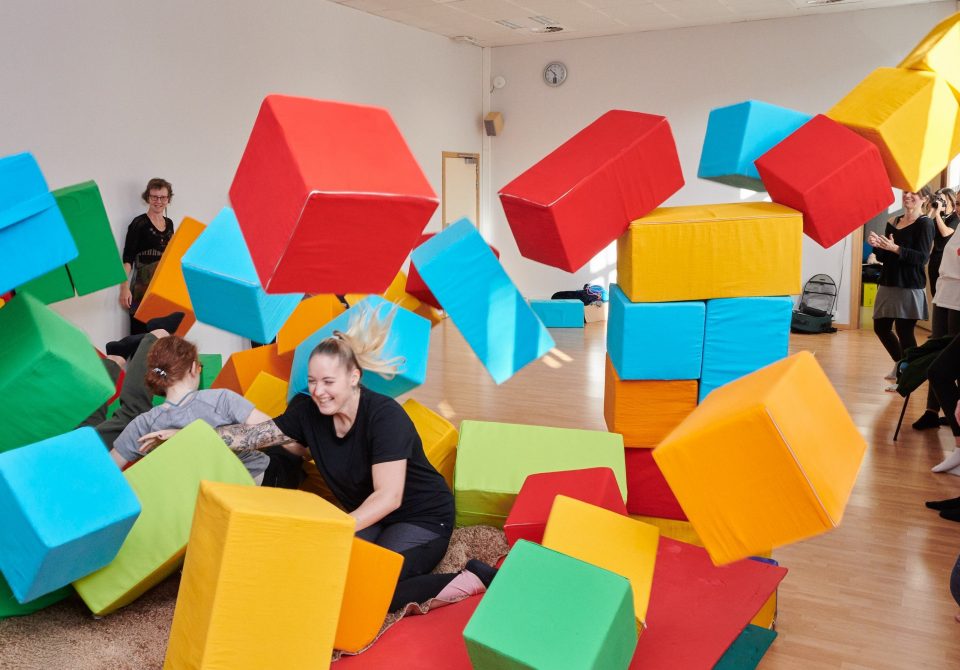In brief
An active profession that allows you to work with people in difficulty and to understand the link between the body and the mind.
The strengths of the Bachelor in Psychomotricity
- Recognised expertise in the field of motricity.
- Collaboration with distinguished psychomotor specialists in conferences and seminars.
- The profession involves working with the body and psychomotor expressivity.
Good to know
Being a psychomotor carer means engaging with one's own body and psyche in the care of clients. In this programme, students learn to engage, to connect, both emotionally and physically.
The Bachelor in Psychomotricity is recognised and certified by the Wallonia-Brussels Federation (Department of Higher Education). All psychomotor carers may practice in the fields of prevention, education or psychomotor therapy.
A career as a Psychomotor Therapist
The psychomotor carer is a health care professional focused on physical, mental, social, interpersonal and somato-emotional (=which makes the link between the body and emotions) well-being. The therapist provides comprehensive support to people who are confronted with different types of mind-body suffering. The carer supports the overall development of the person and the preservation of the body-psyche link. Psychomotor carers use specific methods to design psychomotor- task-based bodily activities which use psycho-corporal techniques, relaxation, body awareness, body media, postural and gestural expressiveness, games, etc.
Psychomotor carers may intervene:
- At all stages of life, from the new born baby to the elderly person, by supporting their ability to be, to function and to live in and through their body with a concomitant motricity;
- In different fields of intervention: education, prevention, coaching and research.
The psychomotor carer may also help to develop their profession by contributing to applied research.
Whether self-employed or employed in an institution, the psychomotor carer provides support to individuals and/or groups and works in an interdisciplinary manner with other professionals.
The title of Psychomotor Carer is recognised by institutions subsidised by the Agence pour une Vie de Qualité (AViQ), Santé Mentale and Maisons de Repos et de Soins (MRS). Some complementary health insurers will reimburse psychomotor sessions. At the time of writing, only therapeutic treatments (law of 10 May 2015) are reserved to other health care professionals (doctors, physiotherapists, etc.).
The Programme of Study
Programme3 years - 180 credits
The programme is structured around 4 main themes:
- Basic and biomedical sciences: anatomy, general and special pathology, movement analysis, biology, etc.
- Human sciences: psychology, education science, sociological approach to the body, etc.
- The art of psychomotricity: methodology, physical activities with the body, psychomotricity theory, etc.
- Professional integration activities: work placements, final-year dissertation, seminars.
-
Block 1
Block 1 courses focus on the scientific underpinnings of psychomotricity, human sciences and basic sciences. The aim is to ground students in the body approach and how this relates to other topics.
-
Block 2
Block 2 courses include specialist units which address different publics: the child, the adult suffering from a disorder, the elderly person. A third of the year is devoted to work placements.
Students may also participate in an integrated activity in collaboration with a school: carrying out psychomotricity sessions with nursery children.
-
Block 3
Most of the year is devoted to work placements as well as the writing of a final year dissertation. Taught courses take up a third of the year’s workload.
Clinical seminars are led by experts and researchers in psychomotricity.
